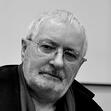Terry Eagleton reviews Trouble in Paradise and Absolute Recoil by Slavoj iek
It is said that Jean-Paul Sartre turned white-faced with excitement when a colleague arrived hotfoot from Germany with the news that one could make philosophy out of the ashtray. In these two new books, Slavoj iek philosophises in much the same spirit about sex, swearing, decaffeinated coffee, vampires, Henry Kissinger, The Sound of Music, the Muslim Brotherhood, the South Korean suicide rate and a good deal more. If there seems no end to his intellectual promiscuity, it is because he suffers from a rare affliction known as being interested in everything. In Britain, philosophers tend to divide between academics who write for each other and meaning-of-life merchants who beam their reflections at the general public. Part of ieks secret is that he is both at once: a formidably erudite scholar well-versed in Kant and Heidegger who also has a consuming passion for the everyday. He is equally at home with Hegel and Hitchcock, the Fall from Eden and the fall of Mubarak. If he knows about Wagner and Schoenberg, he is also an avid consumer of vampire movies and detective fiction. A lot of his readers have learned to understand Freud or Nietzsche by viewing them through the lens of Jaws or Mary Poppins.
Academic philosophers can be obscure, whereas popularisers aim to be clear. With his urge to dismantle oppositions, iek has it both ways here. If some of his ideas can be hard to digest, his style is a model of lucidity. Absolute Recoil is full of intractable stuff, but Trouble in Paradise reports on the political situation in Egypt, China, Korea, Ukraine and the world in general in a crisp, well-crafted prose that any newspaper should be proud to publish. Not that, given ieks provocatively political opinions, many of them would. He sees the world as divided between liberal capitalism and fundamentalism in other words, between those who believe too little and those who believe too much. Instead of taking sides, however, he stresses the secret complicity between the two camps. Fundamentalism is the ugly creed of those who feel washed up and humiliated by a west that has too often ridden roughshod over their interests. One lesson of the Egyptian revolt, iek argues in Trouble in Paradise, is that if moderate liberal forces continue to ignore the radical left, they will generate an unsurmountable fundamentalist wave. Toppling tyrants, which all good liberals applaud, is simply a prelude to the hard work of radical social transformation, without which fundamentalism will return. In a world everywhere under the heel of capital, only radical politics can retrieve what is worth saving in the liberal legacy. It is no wonder that iek is as unpopular with Channel 4 as he is on Wall Street.
Continue reading...Terry Eagleton's Blog
- Terry Eagleton's profile
- 1267 followers



